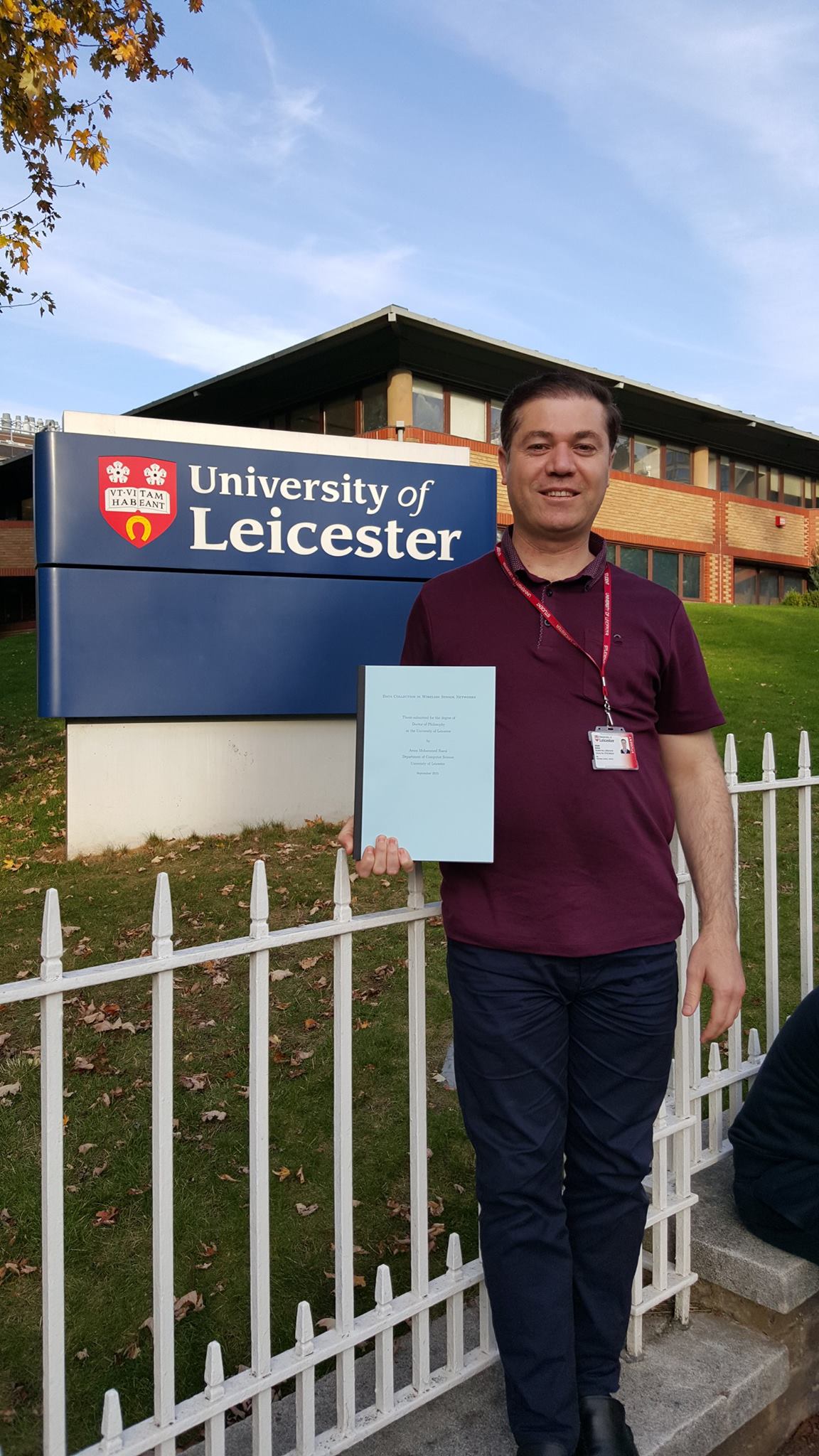
Aram Mohammed Rasul
Lecturer
College: Basic Education
Department: Computer Science
Email: aram.mohammed@uor.edu.krd
Philosophy of Teaching
Teaching PhilosophyMy teaching philosophy in computer science is guided by three core principles: building a strong foundation in fundamental concepts, fostering active and hands-on learning, and nurturing critical thinking and problem-solving abilities.
Deep Understanding of Core Concepts:
I believe that a solid grasp of foundational concepts is essential for success in computer science. To achieve this, I break down complex ideas into manageable parts, connect them to real-world applications, and use clear explanations supported by concrete examples. I encourage students to ask questions, engage in meaningful discussions, and delve into the underlying principles of the subject to develop a deeper understanding.
Active and Experiential Learning:
I emphasize learning by doing. Through coding exercises, hands-on activities, and practical projects, students can directly apply theoretical knowledge in real-world contexts. This approach not only reinforces learning but also strengthens analytical and problem-solving skills. By incorporating group work and collaborative projects, I also help students enhance their communication and teamwork abilities.
Critical Thinking and Problem Solving:
Computer science thrives on analytical thinking and problem-solving. I challenge students with complex problems that require systematic approaches, guiding them to break down tasks, design algorithms, and assess the efficiency of different solutions. I promote critical thinking by encouraging exploration of alternative methods and understanding the trade-offs involved in various approaches.
In addition to these pillars, I strive to create a welcoming, inclusive, and supportive classroom environment where students feel safe to express themselves, ask questions, and share diverse perspectives. I value diversity and aim to foster an atmosphere of respect and collaboration.
Finally, I recognize that computer science is a rapidly evolving discipline. I encourage students to cultivate curiosity, adaptability, and a growth mindset. By staying informed about emerging technologies and embracing continuous learning, they can remain agile and relevant in their careers.
In summary, my teaching philosophy is rooted in providing a deep conceptual foundation, promoting active engagement, developing critical thinking, and cultivating an inclusive, lifelong learning environment. These principles aim to prepare students for both the challenges and opportunities in the ever-changing field of computer science.
Certificates
| Certificate | Specialization | Department | Country | Year Granted |
|---|---|---|---|---|
| PhD | Data collection in wireless sensor networks | Computer | Uk | 2016-07-13 |
Academic Titles
| Academic title | Place | Country | Year granted |
|---|---|---|---|
| Lecturer | University of Leicester | UK | 2016-07-13 |
Languages
| Language | Language Quality |
|---|---|
| Kurdish | Mother tongue |
Conferences
| Name of Conference | Title of Paper | Type of Presentation | Place | Country | Date |
|---|---|---|---|---|---|
| The effectiveness of Artifical Intelligence in the present days | Machine learing | Keynote Speech | University of Soran | iraq | 2023-03-07 |
| International symposium on applied computing | An Energy Efficient Multi-hop Forwarding Tour Construction Using Restricted k-means Clustering Algorithm for Mobile Sink in Wireless Sensor Networks | Seminar | Hall of activities | Iraq | 2019-06-19 |
| 11th International Conference on Developments in eSystems Engineering (DeSE) 2018 | An Energy Efficient Tour Construction Using Restricted k-Means Clustering Algorithm for Mobile Sink in Wireless Sensor Networks | Seminar | University of cambridge | UK | 2018-09-02 |
| BAASANA International Conference 2017 in Exeter, England, UK! | A new Metaheuristic Approach for assignment problem based on the concept of the laying chicken algorithm | Scientific Poster | England | Uk | 2017-08-16 |
Workshops and Trainings
| Event Type | Title | Place | Date | Level |
|---|---|---|---|---|
| Workshop | ۆرکشۆپی گرینگی زمانەکانی پرۆگرامینگ لە رۆبۆتوکدا | پەیمانگای قەلادزێی ناحکومی بۆ زانستەکانی کۆمپیوتەر | 2025-02-25 | Local |
| Workshop | How to determine Upper and Lower Bounds. (Different models in algorithm Design and Image processing) | هۆلی بهشی ئینگلیزی | 2022-06-20 | Local |
| Workshop | Algorithmic Thinking | هۆڵی چالاکیەکانی زانکۆ | 2021-06-09 | Local |
| Workshop | Emergying filed and interdisplinary studies in C.S | Hall of activities, basic eduction | 2017-04-11 | Regional |
Undergraduate Teaching
| Subject | Department | Stage | Academic Year |
|---|---|---|---|
| Algorithm design and analysis | Computer science | Third Stage | 2024-2025 |
| Information Technology (IT) | islamic study | First Stage | 2024-2025 |
| Algorithm design and analysis | Computer science | Third Stage | 2023-2024 |
| Datamining | Computer science | Fourth Stage | 2022-2023 |
| Algorithm Design and Analysis | computer science | Third Stage | 2022-2023 |
| Data mining | computer | Fourth Stage | 2021-2022 |
| IT skill | Biology | First Stage | 2021-2022 |
| Data Mining | Computer | Fourth Stage | 2020-2021 |
| Data Mining | Computer/Evening | Fourth Stage | 2020-2021 |
| Computation Theory | Computer | Second Stage | 2020-2021 |
| Stracture programming | Computer science | First Stage | 2018-2019 |
| Data minig | Computer science | Fourth Stage | 2018-2019 |
| OOP | Computer | Second Stage | 2016-2017 |
| Data mining | Computer | Fourth Stage | 2016-2017 |
Postgraduate Teaching
| Subject | Department | Academic Year |
|---|---|---|
| Data Communication & Networking | Computer science | 2023-2024 |
Journal Papers
- An Energy Efficient Tour Construction Using Restricted k-Means Clustering Algorithm for Mobile Sink in Wireless Sensor Networks. IEEE digital library - 2019
- The extra-bit technique for reducing idle listening in data collection. IJSNet 25(1) International Journal of Sensor Networks - 2017
Books
- An entrance to c++. Hevi press in Erbil - 2019

